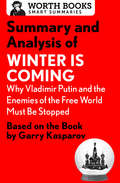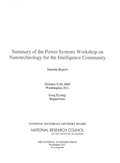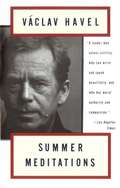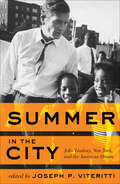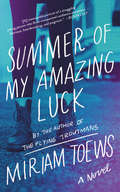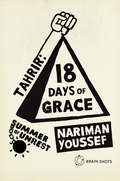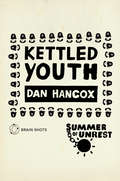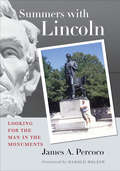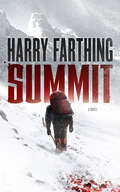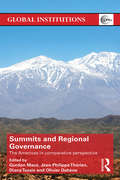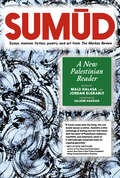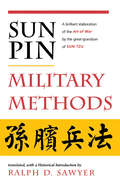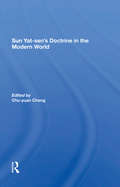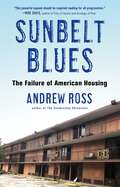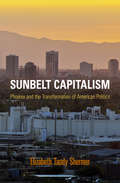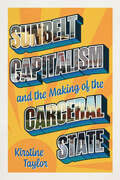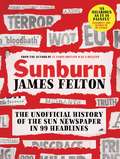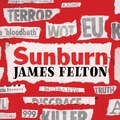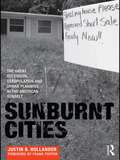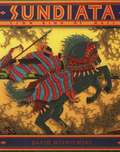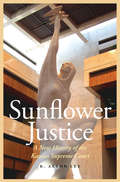- Table View
- List View
Summary and Analysis of Winter Is Coming: Based on the Book by Garry Kasparov
by Worth BooksSo much to read, so little time? This brief overview of Winter Is Coming tells you what you need to know—before or after you read Garry Kasparov’s book. Crafted and edited with care, Worth Books set the standard for quality and give you the tools you need to be a well-informed reader. This short summary and analysis of Winter Is Coming includes: Historical contextChapter-by-chapter overviewsProfiles of the main charactersDetailed timeline of key eventsImportant quotesFascinating triviaGlossary of termsSupporting material to enhance your understanding of the original workAbout Winter Is Coming: Why Vladimir Putin and the Enemies of the Free World Must Be Stopped by Garry Kasparov: Winter Is Coming tells the story of Vladimir Putin’s stunning rise to power—and is a dire warning. Beginning with the fall of the Soviet Union, Russian dissident and chess champion Garry Kasparov traces the circumstances that allowed Putin to flourish, including Russia’s aborted attempt at democracy under Boris Yeltsin and the Chechen Wars. Despite Putin’s constant and ruthless assaults on civil liberties and international diplomacy—including his botched hostage negotiations in Beslan, corruption and voter fraud, the imprisonment and murders of protesters and opposition figures, and the annexation of the Crimea region in Ukraine—the West and the UN continue to acquiesce to his demands, making him stronger. Learn why Garry Kasparov likens Putin to Adolf Hitler of the 1930s and why he believes that if no one steps in to stop him, the consequences could be disastrous. The summary and analysis in this ebook are intended to complement your reading experience and bring you closer to a great work of nonfiction.
Summary of the Power Systems Workshop on Nanotechnology for the Intelligence Community: Interim Report
by National Materials Advisory BoardThe emergence of nanotechnology as a major science and technology research topic has sparked substantial interest by the intelligence community. In particular the community is interested both in the potential for nanotechnology to assist intelligence operations and threats it could create. To explore these questions, the Intelligence Technology Innovation Center asked the National Research Council to conduct a number of activities to illustrate the potential for nanotechnology to address key intelligence community needs. The first of these was a workshop to explore technology opportunities and challenges in power systems that could be addressed by nanotechnology. This report presents a summary of that workshop. It includes an overview of power technologies and discussions on nanoscale properties of energy storage materials, device experience, manufacturing and material handling considerations, and natural power.
Summer Meditations
by Paul Wilson Václav Havel<p>In a book written while he was president of Czechoslovakia, Vaclav Havel combines the same powerful eloquence, moral passion, and abiding wisdom that informed his writing as a dissident and playwright, with a candor unprecedented from one with the broad perspective and infinite responsibility of governing a country. <p>Havel, now president of the Czech Republic, addresses the legacy of Communism as the euphoria of the Velvet Revolution gives way to a more problematic reality. Yet even as he grapples with the challenges of political change, he affirms his belief in a politics motivated by moral responsibility; in an economy tempered by compassion; and in the central roles of art and culture in the transformation of society. Summer Meditations is not only a timely and necessary testament of events in Eastern Europe but a profound reflection upon the nature and practice of politics and a stirring call for morality, civility, and openness in public life throughout the world.</p>
Summer in the City: John Lindsay, New York, and the American Dream
by Joseph P. ViterittiThe history, policies, and legacy of John Lindsay, mayor of New York City from 1966 to 1973.Summer in the City takes a clear look at John Lindsay’s tenure as mayor of New York City during the tumultuous 1960s, when President Lyndon Johnson launched his ambitious Great Society Program. Providing an even-handed reassessment of Lindsay’s legacy and the policies of the period, the essays in this volume skillfully dissect his kaleidoscope of progressive ideas and approach to leadership—all set in a perfect storm of huge demographic changes, growing fiscal stress, and an unprecedented commitment by the federal government to attain a more equal society. Compelling archival photos and a timeline give readers a window into the mythic 1960s, a period animated by civil rights marches, demands for black power, antiwar demonstrations, and a heroic intergovernmental effort to redistribute national resources more evenly.Written by prize-winning authors and leading scholars, each chapter covers a distinct aspect of Lindsay’s mayoralty (politics, race relations, finance, public management, architecture, economic development, and the arts), while Joseph P. Viteritti’s introductory and concluding essays offer an honest and nuanced portrait of Lindsay and the prospects for shaping more balanced public priorities as New York City ushers in a new era of progressive leadership.The volume’s sharp focus on the controversies of the Mad Men era will appeal not only to older readers who witnessed its explosive events, but also to younger readers eager for a deeper understanding of the time. A progressive Republican with bold ideals and a fervent belief in the American Dream, Lindsay strove to harness the driving forces of modernization, democratization, acculturation, inclusion, growth, and social justice in ways that will inform our thinking about the future of the city.Contributors: Lizabeth Cohen, Paul Goldberger, Brian Goldstein, Geoffrey Kabaservice, Mariana Mogilevich, Charles R. Morris, David Rogers, Clarence Taylor, and Joseph P. Viteritti
Summer in the City: John Lindsay, New York, and the American Dream
by Joseph P. Viteritti“These first-rate essays provide a positive revaluation of [John Lindsay’s] mayoralty, a convincing defense of the progressive tradition he championed.” —Mike Wallace, Pulitzer Prize–winning coauthor of GothamSummer in the City takes a clear look at John Lindsay’s tenure as mayor of New York City during the tumultuous 1960s, when President Lyndon Johnson launched his ambitious Great Society Program. Providing an even-handed reassessment of Lindsay’s legacy and the policies of the period, the essays in this volume skillfully dissect his kaleidoscope of progressive ideas and approach to leadership—all set in a perfect storm of huge demographic changes, growing fiscal stress, and an unprecedented commitment by the federal government to attain a more equal society. Compelling archival photos and a timeline give readers a window into the mythic 1960s, a period animated by civil rights marches, demands for black power, antiwar demonstrations, and a heroic intergovernmental effort to redistribute national resources more evenly.Written by prize-winning authors and leading scholars, each chapter covers a distinct aspect of Lindsay’s mayoralty (politics, race relations, finance, public management, architecture, economic development, and the arts), while Joseph P. Viteritti’s introductory and concluding essays offer an honest and nuanced portrait of Lindsay and the prospects for shaping more balanced public priorities as New York City ushers in a new era of progressive leadership.“Summer in the City artfully balances the interplay of leadership, ideas about urbanism that were prevalent at the time, and deep political, intergovernmental, demographic, and economic structural forces at play in the 1960s, producing the best volume about Mayor John Lindsay ever published.” —Richard Flanagan, City University of New York
Summer of Hate: Charlottesville, USA
by Hawes SpencerIn August 2017, violence erupted in Charlottesville, Virginia, during two days of demonstrations by white supremacists, neo-Nazis, and counterprotesters, including members of antifa and Black Lives Matter. Ostensibly motivated by the city’s plans to remove Confederate statues from two public parks, members of the alt-right descended first on the University of Virginia and then, disastrously, on the city’s downtown. As these violent and ultimately deadly events gripped the attention of the nation, extensive coverage in both mainstream and fringe media promulgated competing narratives. Summer of Hate is the investigative journalist Hawes Spencer’s unbiased, probing account of August 11 and 12. Telling the story from the perspectives of figures on all sides of the demonstrations, Spencer, who reported from Charlottesville for the New York Times, carefully recreates what happened and why. Focusing on individuals including activists, city councilors, faith leaders, and the police, Spencer creates an objective, panoramic narrative that renders these dramatic events, and the ongoing conflicts underlying them, in all their complexity.
Summer of My Amazing Luck: A Novel
by Miriam Toews"[A] memorable portrait of a struggling young person who finds unexpected resilience and peace . . . Hilarious, heartbreaking, and poignant." —BooklistMiriam Toews welcomes her readers to the Have–a–Life housing project (better known as Half–a–Life). The welfare regulations are endless and the rate–fink neighbors won't mind their own business. Lucy Von Alstyne sends fictitious letters to her friend Alicia, pretending to be the father of Alicia's twins. When the two mothers and their five children set off on a journey to find him, facing along the way the complications of living in poverty and raising fatherless children, Lucy discovers this just may be the summer of her amazing luck.
Summer of Unrest: Tahrir - 18 Days of Grace
by Nariman YoussefOn 25th January this year 50,000 people descended on Tahrir Square in Cairo to protest against president Hosni Mubarak. What followed was an extraordinary 18 days when the square became the focal point for the hopes and fears of Egypt's people, in a situation often joyous but also intense, as the military moved in and Mubarak supporters began to infiltrate the area.Nariman Youssef was in Tahrir Square during this extraordinary gathering. This ebook for the Summer of Unrest series is a gripping diary of that time until Mubarak stepped down on 11th February, which saw the crowds in the square swell to 1 million at one point. As well as an extraordinary insight from within the most important uprising in the Arab Spring, Youssef pulls back to document the signposts to, and issues that fueled, the surge for democratic change in Egypt, exploding myths and uncovering hidden truths as she goes.BRAIN SHOTS is the pre-eminent source for high quality, short-form digital non-fiction. The Summer of Unrest series brings together stellar writers to explore the issues surrounding the austerity measures in the UK, uprisings in the Middle East and the nature of the protest movements springing up all over the world.
Summer of Unrest: The Battle Against the Neoliberal Endgame
by Dan Hancox"Those who do not move, do not notice their chains." - Rosa LuxemburgIn this considered and polemical piece, Dan Hancox examines a world in which our fates are no longer governed by elected representatives with shirts and ties, but abstract finance. Where the problem is not so much false consciousness as blurred consciousness. He examines the 'spectacle of capitalism' that has stymied political activism for so long and how the closing months of 2010 saw a surge in rage that continues as the youth of Britain is waking up from its malaise in the face of provocation and the cuts programme.Beginning in the stifling kettle on Westminster Bridge, Hancox weaves on-the-ground reportage with political theory to describe and explain the growth of movements like UK Uncut, the University for Strategic Optimism and other actions to create a better society. An anthem for kettled youth, this ebook is a stake in the ground signalling the rebirth of the curiosity of a generation breaking free of its shackles.BRAIN SHOTS is the pre-eminent source for high quality, short-form digital non-fiction. The Summer of Unrest series brings together stellar writers to explore the issues surrounding the austerity measures in the UK, uprisings in the Middle East and the nature of the protest movements springing up all over the world.
Summers with Lincoln: Looking for the Man in the Monuments
by James A. PercocoA journey across America revealing &“the history of how seven of these monuments came to be . . . and what they mean to us today&” (The Washington Times). Across the country, in the middle of busy city squares and hidden on quiet streets, there are nearly two hundred statues erected in memory of Abraham Lincoln. No other American has ever been so widely commemorated. A few years ago, Jim Percoco, a history teacher with a passion for both Lincoln and public sculpture, set off to see what he might learn about some of these monuments—what they meant to their creators and to the public when they were unveiled, and what they mean to us today. The result is a fascinating chronicle of four summers on the road looking for Lincoln stories in statues of marble and bronze. Percoco selects seven emblematic works, among them Thomas Ball&’s Emancipation Group, erected east of the Capitol in 1876 with private funds from African Americans and dedicated by Frederick Douglass; Augustus Saint-Gaudens&’s majestic Standing Lincoln of 1887 in Chicago; Paul Manship&’s 1932 Lincoln the Hoosier Youth, in Fort Wayne, Indiana; and Gutzon Borglum&’s 1911 Seated Lincoln, struggling with the pain of leadership, beckoning visitors to sit next to him on his metal bench in Newark, New Jersey. At each stop, Percoco chronicles the history of the monument, spotlighting its artistic, social, political, and cultural origins. His descriptions draw fresh meaning from mute stone and cold metal—raising provocative questions not just about who Lincoln might have been, but about what we&’ve wanted him to be in the monuments we&’ve built.
Summit: A Novel
by Harry Farthing"Magnificent! A compelling, fast-paced novelthat reveals a rarely seen dark side of Everest. A must-read!" - James W. Huston, New York Times bestselling author of The Blood FlagThe view from 8,848 meters isn't always clear. Even after eight successful summits, Mount Everest guide Neil Quinn can't handle anything the mountain throws his way. Disaster strikes steps from the top, leaving him with a very old swastika-embellished ice axe that should never have been so high on the mountain - not if Everest's meticulously documented history is accurate.Danger doesn't stop at the descent.When he heads back to Europe, blackballed and alone, he struggles to discover the truth about this lost relic. Quinn's investigations soon have neo-Nazis, assassins, and history buffs vying to take possession of the axe'proof of Nazi alpine superiority, and strong evidence that a German climber was the first to summit Mount Everest.Beautifully written and meticulously researched, Summit follows two climbers across two continents as their stories intertwine across history, culminating in one final push for the top of the world."Gripping...Farthing vividly depicts the challenges of mountain climbing." - Publishers Weekly
Summits & Regional Governance: The Americas in Comparative Perspective (Global Institutions)
by Diana Tussie Gordon Mace Jean-Philippe Therien Olivier DabèneDespite the large number of regional and global summits there is very little known about the functioning and impact of this particular type of diplomatic practice. While recognizing that the growing importance of summits is a universal phenomenon, this volume takes advantage of the richness of the Americas experiment to offer a theoretically grounded comparative analysis of contemporary summitry. The book addresses questions such as: How effective have summits been ? How have civil society and other non-state actors been involved in summits? How have summits impacted on the management of regional affairs? Filling a significant void in the literature, this volume offers an original contribution helping to understand how summitry has become a central feature of world politics. It will be of great interest to students and scholars of diplomacy, international organizations, and global/regional governance.
Sumud: A New Palestinian Reader
by Malu Halasa Jordan ElgrablyAn anthology that celebrates the power of culture in Palestinian resistance, with selections of memoir, short stories, essays, book reviews, personal narrative, poetry, and art.Includes twenty-five black-and-white illustrations by Palestinian artists.The Arabic word sumūd is often loosely translated as &“steadfastness&” or &“standing fast.&” It is, above all, a Palestinian cultural value of everyday perseverance in the face of Israeli occupation. Sumūd is both a personal and collective commitment; people determine their own lives, despite the environment of constant oppressions imposed upon them. This anthology spans the 20th and 21st centuries of Palestinian cultural history, and highlights writing from 2021–2024. The collection of writing and art features work from forty-six contributors including:Dispatches from Hossam Madhoun, co-founder of Gaza's Theatre for Everybody, as he survives the post-October 2023 war on Gaza;Novelist Ahmed Masoud with &“Application 39,&” a sci-fi short story about a Dystopian bid for the Olympics;Sara Roy and Ivar Ekeland with &“The New Politics of Exclusion: Gaza as Prologue,&” an analysis of Israel&’s divide and conquer policies of fragmentation;Historian Ilan Pappé with a review of Tahrir Hamdi&’s book, Imagining Palestine, in which he unpacks the relationship between culture and resistance;Essayist Lina Mounzer with &“Palestine and the Unspeakable,&” an offering on the language used to dehumanize Palestinians;And poetry by the next generation of poets who have inherited the mantle of the late Mahmoud Darwish (1941–2008).The essays, stories, poetry, art and personal narrative collected in Sumūd: A New Palestinian Reader is a rich riposte to those who would denigrate Palestinians&’ aspirations for a homeland. It also serves as a timely reminder of culture&’s power and importance during occupation and war.
Sun Pin: Military Methods (History and Warfare)
by Ralph D. SawyerA description of the awesome army commanded by Sun Pin, a direct descendent of the legendary Sun Tzu. This translation comments on Sun Pin's life and times. It analyzes in detail Sun Pin's tactics in battles, and compares his strategic thinking with that of Sun Tzu.
Sun Yat-sen's Doctrine In The Modern World
by Chu-yuan Cheng Hung-Chao Tai Harold Z Schiffrin Yu-Long LingThis volume focuses on Sun Yat-sen's social, political, and economic ideas as seen in his major work, The Three Principles of the People, which discusses nationalism, democracy, and people's welfare, examining his doctrines as well as a his ideas with other contemporary ideologies.
Sun-Tzu: The First English Translation Incorporating the Recently Discovered Yin-ch'ueh-shan Texts (Classics Of Ancient China Ser.)
by Roger T. AmesThe most widely read military classic in human history, newly translated and revised in accordance with newly discovered materials of unprecedented historical significance. Fluid, crisp and rigorously faithful to the original, this new text is destined to stand as the definitive version of this cornerstone work of Classical Chinese. Of compelling importance not only to students of Chinese history and literature, but to all readers interested in the art or the philosophy of war.
Sunbelt Blues: The Failure of American Housing
by Andrew RossAn eye-opening investigation of America’s rural and suburban housing crisis, told through a searing portrait of precarious living in Disney World's backyard.Today, a minimum-wage earner can afford a one-bedroom apartment in only 145 out of 3,143 counties in America. One of the very worst places in the United States to look for affordable housing is Osceola County, Florida.Once the main approach to Disney World, where vacationers found lodging on their way to the Magic Kingdom, the fifteen-mile Route 192 corridor in Osceola has become a site of shocking contrasts. At one end, global investors snatch up foreclosed properties and park their capital in extravagant vacation homes for affluent visitors, eliminating the county’s affordable housing in the process. At the other, underpaid tourist industry workers, displaced families, and disabled and elderly people subsisting on government checks cram themselves into dilapidated, roach-infested motels, or move into tent camps in the woods.Through visceral, frontline reporting from the motels and encampments dotting central Florida, renowned social analyst Andrew Ross exposes the overlooked housing crisis sweeping America’s suburbs and rural areas, where residents suffer ongoing trauma, poverty, and nihilism. As millions of renters face down evictions and foreclosures in the midst of the COVID-19 recession, Andrew Ross reveals how ineffective government planning, property market speculation, and poverty wages have combined to create this catastrophe. Urgent and incisive, Sunbelt Blues offers original insight into what is quickly becoming a full-blown national emergency.
Sunbelt Capitalism
by Elizabeth Tandy ShermerFew Sunbelt cities burned brighter or contributed more to the conservative movement than Phoenix. In 1910, eleven thousand people called Phoenix home; now, over four million reside in this metropolitan region. In Sunbelt Capitalism, Elizabeth Tandy Shermer tells the story of the city's expansion and its impact on the nation. The dramatic growth of Phoenix speaks not only to the character and history of the Sunbelt but also to the evolution in American capitalism that sustained it.In the 1930s, Barry Goldwater and other members of the Phoenix Chamber of Commerce feared the influence of New Deal planners, small businessmen, and Arizona trade unionists. While Phoenix's business elite detested liberal policies, they were not hostile to government action per se. Goldwater and his contemporaries instead experimented with statecraft now deemed neoliberal. They embraced politics, policy, and federal funding to fashion a favorable "business climate," which relied on disenfranchising voters, weakening unions, repealing regulations, and shifting the tax burden onto homeowners and consumers. These efforts allied them with executives at the helm of the modern conservative movement, whose success partially hinged on relocating factories from the Steelbelt to the kind of free-enterprise oasis that Phoenix represented. But the city did not sprawl in a vacuum. All Sunbelt boosters used the same incentives to compete at a fever pitch for investment, and the resulting drain of jobs and capital from the industrial core forced Midwesterners and Northeasterners into the brawl. Eventually this "Second War Between the States" reoriented American politics toward the principle that the government and the citizenry should be working in the interest of business.
Sunbelt Capitalism and the Making of the Carceral State (Chicago Series in Law and Society)
by Kirstine TaylorThe story of how the American South became the most incarcerated region in the world’s most incarcerated nation. Sunbelt Capitalism and the Making of the Carceral State examines the evolution of southern criminal punishment from Jim Crow to the dawn of mass incarceration, charting this definitive era of carceral transformation and expansion in the southern United States. The demise of the county chain gang, the professionalization of police, and the construction of large-scale prisons were among the sweeping changes that forever altered the southern landscape and bolstered the region’s capacity to punish. What prompted this southern revolution in criminal punishment? Kirstine Taylor argues that the crisis in the cotton fields and the arrival of Sunbelt capitalism in the south’s rising metropolises prompted lawmakers to build expansive, modern criminal punishment systems in response to Brown v. Board of Education and the Black freedom movements of the 1960s and ‘70s. Taking us inside industry-hunting expeditions, school desegregation battles, the sit-in movement, prisoners’ labor unions, and policy commissions, Taylor tells the story of how a modernizing south became the most incarcerated region in the globe’s most incarcerated nation.
Sunburn: The unofficial history of the Sun newspaper in 99 headlines
by James Felton'An astonishing piece of work' James O'Brien'This book was a delight. Funny, scathing and witty' Ian Dunt You should buy this book if: a) you dislike the Sun, but have never actually read it to know why and/or b) you're still not sure how we got into this mess. Using his famed on-the-nose commentary, Twitter legend James Felton has dissected 99 of the most outlandish stories the Sun (for a long time the biggest-selling British newspaper) has run since it became a tabloid in 1969, hoping to answer once and for all whether the press has reflected - or manipulated - the British people over the last 50 years. Included: joke-riddled and illustrated analyses of the Sun's most infamous stories about celebrities, war, royals, crime, the LGBTQ+ community, migrants, the EU, politics, bacon sandwiches and page 3.Not included: A blindfold. We suggest reading through your fingers instead. 'James Felton makes me laugh like a bellend' Robert Webb'James Felton makes me laugh every day' Marina Hyde'James never fails to make me laugh and then think, then laugh some more' Dermot O'Leary
Sunburn: The unofficial history of the Sun newspaper in 99 headlines
by James Felton'An astonishing piece of work' James O'Brien'This book was a delight. Funny, scathing and witty' Ian Dunt You should buy this book if: a) you dislike the Sun, but have never actually read it to know why and/or b) you're still not sure how we got into this mess.Using his famed on-the-nose commentary, Twitter legend James Felton has dissected 99 of the most outlandish stories the Sun (for a long time the biggest-selling British newspaper) has run since it became a tabloid in 1969, hoping to answer once and for all whether the press has reflected - or manipulated - the British people over the last 50 years. Included: joke-riddled and illustrated analyses of the Sun's most infamous stories about celebrities, war, royals, crime, the LGBTQ+ community, migrants, the EU, politics, bacon sandwiches and page 3.Not included: A blindfold. We suggest reading through your fingers instead. 'James Felton makes me laugh like a bellend' Robert Webb'James Felton makes me laugh every day' Marina Hyde'James never fails to make me laugh and then think, then laugh some more' Dermot O'Leary
Sunburn: The unofficial history of the Sun newspaper in 99 headlines
by James FeltonJAMES FELTON'S "ASSHOLES" IS OUT NOW 'An astonishing piece of work' James O'Brien'This book was a delight. Funny, scathing and witty' Ian Dunt You should buy this book if: a) you dislike the Sun, but have never actually read it to know why and/or b) you're still not sure how we got into this mess. Using his famed on-the-nose commentary, Twitter legend James Felton has dissected 99 of the most outlandish stories the Sun (for a long time the biggest-selling British newspaper) has run since it became a tabloid in 1969, hoping to answer once and for all whether the press has reflected - or manipulated - the British people over the last 50 years. Included: joke-riddled and illustrated analyses of the Sun's most infamous stories about celebrities, war, royals, crime, the LGBTQ+ community, migrants, the EU, politics, bacon sandwiches and page 3.Not included: A blindfold. We suggest reading through your fingers instead. 'James Felton makes me laugh like a bellend' Robert Webb'James Felton makes me laugh every day' Marina Hyde'James never fails to make me laugh and then think, then laugh some more' Dermot O'Leary
Sunburnt Cities: The Great Recession, Depopulation and Urban Planning in the American Sunbelt
by Justin B. HollanderIn recent years there has been a growing focus on urban and environmental studies, and the skills and techniques needed to address the wider challenges of how to create sustainable communities. Central to that demand is the increasing urgency of addressing the issue of urban decline, and the response has almost always been to pursue growth policies to attempt to reverse that decline. The track record of growth policies has been mixed at best. Until the first decade of the twenty-first century decline was assumed to be an issue only for former industrial cities – the so-called Rust Belt. But the sudden reversal in growth in the major cities of the American Sunbelt has shown that urban decline can be a much wider issue. Justin Hollander’s research into urban decline in both the Sun and Rust Belts draws lessons planners and policy makers that can be applied universally. Hollander addresses the reasons and statistics behind these "shrinking cities" with a positive outlook, arguing that growth for growth’s sake is not beneficial for communities, suggesting instead that urban development could be achieved through shrinkage. Case studies on Phoenix, Flint, Orlando and Fresno support the argument, and Hollander delves into the numbers, literature and individual lives affected and how they have changed in response to the declining regions. Written for urban scholars and to suit a wide range of courses focused on contemporary urban studies, this text forms a base for all study on shrinking cities for professionals, academics and students in urban design, planning, public administration and sociology.
Sundiata: Lion King of Mali
by David WisniewskiIn the thirteenth century, Sundiata overcame physical handicaps, social disgrace, and strong opposition to rule the West African trading empire of Mali.
Sunflower Justice: A New History of the Kansas Supreme Court (Law in the American West)
by R. Alton LeeUntil recently, American legal historiography focused almost solely on national government. Although much of Kansas law reflects U.S. law, the state court’s arbitrary powers over labor-management conflicts, yellow dog contracts, civil rights, gender issues, and domestic relations set precedents that reverberated around the country. Sunflower Justice is a pioneering work that presents the history of a state through the use of its supreme court decisions as evidence. R. Alton Lee traces Kansas’s legal history through 150 years of records, shedding light on the state’s political, economic, and social history in this groundbreaking overview of Kansas legal cases and judicial biographies. Beginning with the territorial justices and continuing through the late twentieth century, R. Alton Lee covers the dispossession of Native Americans’ land, the growth and impact of labor unions, antimonopoly cases against railroad and mining companies, a nine-year state ban on the movie Birth of a Nation, and implications and effects of desegregation, as well as the shooting of Dr. George Tiller for performing legal abortions. Because judicial decisions are not made in a vacuum, Lee presents each of the justices in the context of the era and their personal experiences before examining how their decisions shaped Kansas political, economic, social, and legal history.
